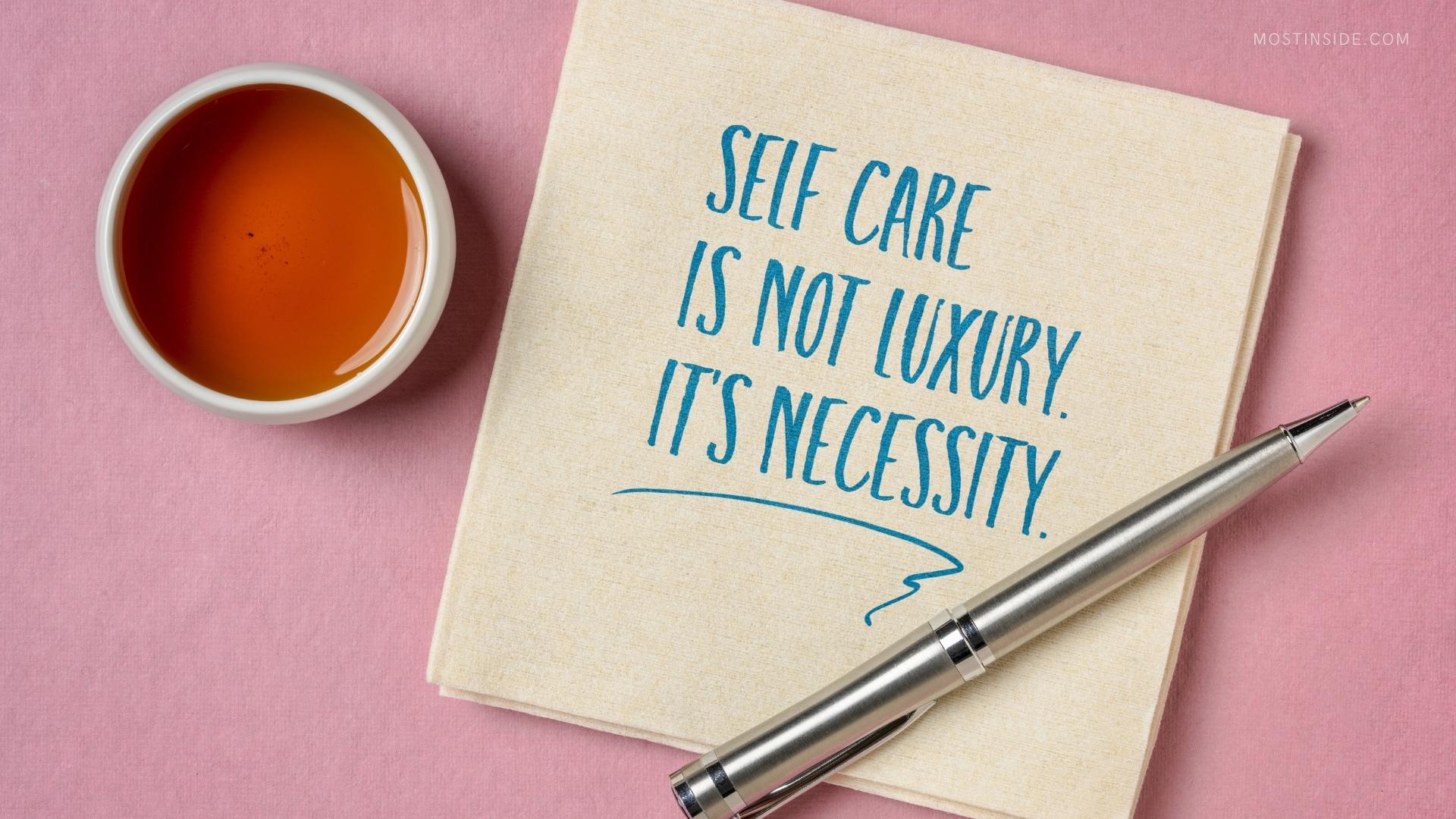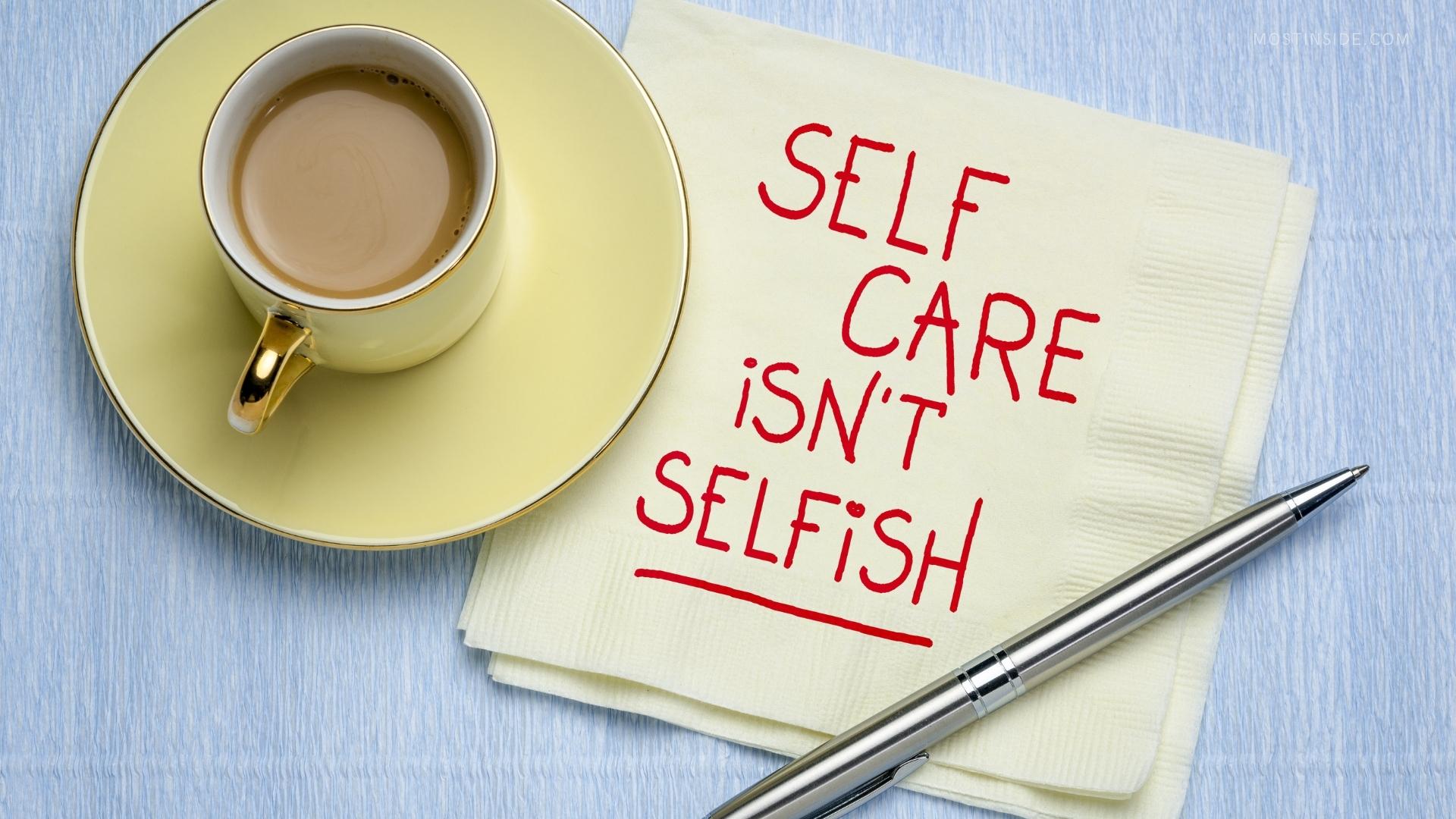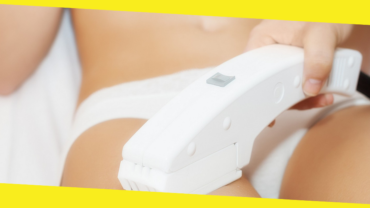The Value of Self-care During Drug and Alcohol Rehab
What comes to your mind when you hear the word self-care? Is it pampering yourself at spas and skin clinics, going shopping, or dining at your favorite restaurant? Yes, these are excellent ways to take good care of yourself. However, it’s more than you think when you connect it with treating addiction and its recovery process.
Self-care revolves around the physical, mental, and emotional well-being and health of a person. These are all essential parts of addiction recovery. The main goal of self-care in a recovery process is for previous patients to maintain a happier and healthier quality of life.
The path to recovery often grabs the attention of others who notice your positive results, and they will probably love that you’re taking care of yourself properly after the fight with destructive disorders, such as alcohol and drug addiction. If you want to learn more about self-care treatment, you may visit your local rehab center for tips and assistance.
When you begin your journey to self-care, the first thing you need to do is establish your goals. What are the things you want to prioritize? What are those that you want to eliminate and leave behind? Addressing these questions will give you the courage and strength to face your addiction.

Contents
ToggleSelf-Care In The Addiction Recovery Process
According to experts, self-care can be defined as the ability to focus and improve the emotional, physical, and psychological state of well-being and health of a person by themselves. There are three types of self-care, and these are as follows:
- Physical Self-Care: This type of self-care focuses on eating a balanced diet, drinking plenty of water, getting adequate and quality sleep, practicing good personal hygiene, and working out every day.
- Emotional Self-Care: This would mean to have time with yourself, make yourself happy, treat yourself with love and kindness, and explore the deepest depths of your emotions.
- Mental Self-Care: This is the part where you have to unwind and free yourself from all the stressful factors that lock you up. It is also about finding ways to clear your mind and fill it with positivity and healthy thoughts.
In some sources, self-care can also be divided into positive and negative ways, and here’s the difference between them:
- Positive Self-Care: This means that you have to put yourself before anything else. However, others might perceive it as selfishness, but it’s not. Taking care of yourself will never be a selfish act, especially when you’re recovering from addiction.
Being an addict has made you put drugs and alcohol above everything else, even your relationship with other people and managing your finances. So, it’s only right to say to take care of yourself and focus on your well-being.
This type of self-care also involves the company of other people like your family and friends to help you find hope in every little way, stay positive, and stay on track even in the hardest times.
- Negative Self-Care: This is simply drowning yourself in addiction. You’re making yourself happy and contented in wrong and vicious ways.
Moreover, practicing self-care significantly improves the quality of your life by helping you find happiness and positivity even in the smallest things. It also allows you to live with a purpose to fulfill by being grateful for what you have.

Importance Of Self-Care In Addiction Recovery
It’s important to understand that self-care is not an additional luxury to your path to recovery. It is the path you have to take to fulfill your inner needs. It involves physical, mental, and emotional undertakings to completely overcome addiction.
When you take care of yourself physically and emotionally, you allow yourself to have and maintain a healthy mind and body. With proper exercise, a balanced diet, and a quality sleep cycle, you can reduce your substance cravings, leading you to a successful path to recovery.
Likewise, being consistent with self-care will help you reduce the risk of relapses during your recovery. Relapse is an effect where previous symptoms suddenly show up. In most cases, the occurrence of relapse may indicate a change in the recovery plan or treatment. This is something normal, so there’s nothing to worry about it.
The best self-care practices to be physically and mentally healthy are working alongside a counselor, developing good habits, eating a balanced meal, sleeping properly, and improving your movements through exercise.
Does Self-Care Equate To Self-Control?
Self-care means controlling yourself not to do the things that may harm you. Instead, control the things that will make your physical, mental, and emotional well-being healthy to become completely healed and recovered.
Besides, having a good grip of your environment may improve your ability to increase your energy levels while under addiction recovery treatment. It also helps you distinguish the positive side of every feeling, such as hope from hopelessness and encouragement from discouragement. This will help you to be more optimistic in life.
If you’re not having proper self-control, you’re most likely to be out of sync with your self-care routine.
Significance Of Nutrition In Self-Care
Nutrition or having a balanced diet is one of the key components of a structured self-care addiction recovery routine. According to experts, food is best in reducing and eliminating hunger or cravings for substance use.
Today, many nutritionists are working side-by-side with patients to improve a balanced diet plan that will help minimize cravings for drugs and alcohol and reduce stress levels, improving the patient’s physical and mental health.
Additionally, a person who has suffered from a serious addiction is most likely to be malnourished and may develop complex chronic medical conditions. So, it’s crucial to provide them with a healthy diet of fruits, meats, vegetables, and whole grains. These will help them replenish the nutrients they lost while under the influence of drugs and alcohol.
However, eating healthy food may not be enough. If you want to make the most out of your balanced diet, try engaging in physical fitness to reduce stress levels and improve the brain’s cognitive function. It can also enhance the well-being of your body by increasing your power and boosting your heart health.
What Happens When Self-Care Is Not Enough?
While self-care may help you cope with the challenges brought by addiction, sometimes it’s not enough. With that said, here are things you may do:
1. Ask For Additional Support
There’s nothing wrong with asking for additional support. This is admitting that you can’t do everything by yourself and that you need others to become fully recovered. It can also improve your mindset by thinking that there’s nothing wrong with asking for help and that it doesn’t make you look weak.
2. Go To Your Support Groups
Support groups are one of the parts of integrated addiction treatment. A support group introduces you to different people who might be in the same condition as you are. Being in the same place with them may help you find insights, inspiration, and motivation to help you continue your journey.
You may also learn some tips and strategies on how they combat the challenges associated with the recovery process, including the issues of substance cravings.
3. Ask Your Rehab Facility
Don’t forget to ask the rehabilitation center for assistance, especially if you’re not feeling well these past few days. These challenges might become a focal point where the second wave of addiction may be possible. So, don’t take chances and ask for help as soon as possible.
4. Change Your Lifestyle
When self-care is not enough, you might want to consider changing your lifestyle and environment to help you improve the quality of your life. After successful treatment, look for a healthier environment. Look for a place that will not provide you with easy access to substances that turn you into an addict and where you can relax and enjoy your days without any problems.
When it comes to lifestyle, you might want to check your social life and explore what could be lacking. Are you missing activities you would like to do with the people you know? You could be missing out on the past activities you used to do with your friends. Whatever it is, find out the things or activities that would make you feel good and create a plan for them.
5. Spend Time With People You Want
Do you spend enough quality time with the people you enjoy and appreciate? If not, this might be a good start to fill the gaps of self-care and reach a new level of socialization. Communicate with your family and friends, spend lunchtime together, or relax with them. These are some of the best ways to achieve full recovery when self-care may not be enough.
Signs Of Poor Self-Care
Addiction may take away the standards, qualities, and characteristics you once promoted in your life. Thus, it’s vital to look for signs that indicate poor self-care or self-neglect to ensure a safe path to recovery. Some signs you need to look for are:
- Having a careless attitude toward oneself and other people
- Not taking care of how they look
- Poor personal hygiene, such as not washing hands after touching anything, etc.
- Neglecting the activities they used to love
- Being aggressive when hearing criticisms from other concerned people
- Not eating properly, especially healthy food such as fruits and vegetables
- Lazy to perform other beneficial activities, such as workouts
These signs of poor self-care may cause serious health problems unrelated to addiction. So, it’s important to think about the possible problems related to one of these signs before self-care even starts.
How To Incorporate Self-Care Into Addiction Recovery Plan
Here are some of the best practices to incorporate proper self-care treatment into your addiction recovery plan:
1. Take Time To Self-Reflect
Before you do anything else, spending a little time checking yourself would be helpful. You may want to consider asking the following questions:
- How are you feeling today?
- What are you grateful for today?
- What did you learn about yourself today?
- What do you plan to learn in the future?
- Did someone make you happy today?
Answering these questions is a helpful way to be present in your own life.
2. Use A Diary
Writing in a diary is a great way to keep yourself in check. You may write here all the things you have accomplished every day. It will also help you with the things you want to improve by looking at what you have done in the past few days.
Furthermore, a diary is an effective way to relieve stress, identify trigger factors, and get to know yourself even better. You may write it in bullet form, essay style, or any form you want. There’s no perfect way of doing it. You’ll be writing about your life, and only you have the power to access deep within your privacy. So, do whatever pleases you.
3. Set Healthy Boundaries
It’s important to set boundaries to the factors that led you to substance addiction. It could be peer pressure, unhealthy work or school environment, toxic people, and stress.
When setting your boundaries, consider checking the place you want to go, the people you want to enjoy with, and the possible situations that may bring another series of relapses. As much as possible, avoid the factors that may trigger your cravings for substances.
Instead, go to places that offer relaxation and peace, be with people that make you happy, and do the things you love without possibly hurting yourself.
4. Connect With Other People In Recovery
Depression, anxiety, addiction, and other mental conditions often originate and thrive in solitude. If you want to combat relapse and improve mental health, try to communicate with people who also have the same condition, such as those in support groups.
These groups of people will help you build yourself up again and support you to keep you sober. You may try attending 12-step groups, Alcoholics Anonymous (AA), and Narcotics Anonymous (NA) to find some pieces of advice and encouragement to help you with your recovery.
Final Words
Self-care is an important aspect that will help you recover from your addiction completely. A good self-care routine and practices prioritize the things that improve and develop physical, mental, and emotional health and well-being.
With this, it will be easy for you to say no to cravings, reduce relapses, and have a better quality of life with the family and friends that support you.
Yet if you’re still struggling even after a comprehensive treatment plan, don’t hesitate to ask for help from addiction care centers and get the help you need.
Recommended For You
Common Myths About Laser Hair Removal Treatment
Most Inside
Most Inside offers high-quality recommendations and valuable updates to enhance all aspects of your life, providing premium guidance and enriching experiences.




